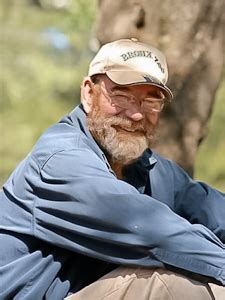A Quote by Janine Benyus
A solitary American monk named Thomas Berry writes that in our relationship to nature, we have been autistic for centuries. Wrapped tightly in our own version of knowledge, we have been unreceptive to the wisdom of the natural world. To tune in again, to have the "spontaneous environmental rapport" that characterized our ancestors, will take doing something that is perfectly delightful: reimmersing ourselves in the natural world.
Quote Topics
Related Quotes
My wish list is pretty short. I wish that we had empathy. As a society, we are so wrapped up in our own artificial creations that we have become disconnected from one another and the wonder of our natural world. I truly believe that empathy is the key to solving the majority of our environmental and social problems.
No other life forms know they are alive, and neither do they know they will die. This is our curse alone. Without this hex upon our heads, we would never have withdrawn as far as we have from the natural—so far and for such a time that it is a relief to say what we have been trying with our all not to say: We have long since been denizens of the natural world. Everywhere around us are natural habitats, but within us is the shiver of startling and dreadful things. Simply put: We are not from here. If we vanished tomorrow, no organism on this planet would miss us. Nothing in nature needs us.
We will rebuild our country with American workers, American iron, American aluminum, American steel. We will create millions of new jobs and make millions of American dreams come true. Our infrastructure will again be the best in the world. We used to have the greatest infrastructure anywhere in the world, and today, we are like a third-world country. We are literally like a third-world country. Our infrastructure will again be the best, and we will restore the pride in our communities, our nation.
The future of life on earth depends on our ability to take action. Many individuals are doing what they can, but real success can only come if there's a change in our societies and our economics and in our politics. I've been lucky in my lifetime to see some of the greatest spectacles that the natural world has to offer. Surely we have a responsibility to leave for future generations a planet that is healthy, inhabitable by all species
Surely knowledge of the natural world, knowledge of the human condition, knowledge of the nature and dynamics of society, knowledge of the past so that one may use it in experiencing the present and aspiring to the future--all of these, it would seem reasonable to suppose, are essential to an educated man. To these must be added another--knowledge of the products of our artistic heritage that mark the history of our esthetic wonder and delight.
Zen, like life, defies exact definition, but its essence is the experience, moment by moment, of our own existence -- a natural, spontaneous encounter, unclouded by the suppositions and expectations that come between us and reality. It is, if you like, a paring down of life until we see it as it really is, free from our illusions; it is merely a divestment of ourselves until we recognize our own true nature.
Why do we so mindlessly abuse our planet, our only home? The answer to that lies in each of us. Therefore, we will strive to bring about understanding that we are--each one of us--responsible for more than just ourselves, our family, our football team, our country, or our own kind; that there is more to life than just these things. That each one of us must also bring the natural world back into its proper place in our lives, and realize that doing so is not some lofty ideal but a vital part of our personal survival.
Let us, then, take our compass; we are something, and we are not everything. The nature of our existence hides from us the knowledge of first beginnings which are born of the nothing; and the littleness of our being conceals from us the sight of the infinite. Our intellect holds the same position in the world of thought as our body occupies in the expanse of nature.





































